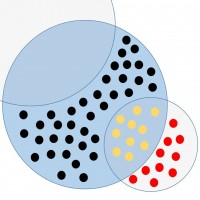Das Repräsentantenhaus des US-Bundesstaates Utah hat am Freitag mit großer Mehrheit eine Resolution mit “Climategate”-Bezug verabschiedet, mit der die Umweltschutzbehörde darum ersucht wird, sämtliche Klimaschutzmaßnahmen unverzüglich einzustellen.
Kaum zu glauben aber wahr:
CLIMATE CHANGE JOINT RESOLUTION
2010 GENERAL SESSION
STATE OF UTAH
Chief Sponsor: Kerry W. Gibson
Senate Sponsor: Scott K. Jenkins
General Description:
This joint resolution of the Legislature urges the United States Environmental Protection Agency to cease its carbon dioxide reduction policies, programs, and regulations until climate data and global warming science are substantiated.
Highlighted Provisions:
This resolution urges the United States Environmental Protection Agency to immediately halt its carbon dioxide reduction policies and programs and withdraw its “Endangerment Finding” and related regulations until a full and independent investigation of climate data and global warming science can be substantiated.
Special Clauses:
None
Be it resolved by the Legislature of the state of Utah:
WHEREAS, proposed cap and trade legislation before the United States Congress, together with potential state actions to reduce carbon dioxide (CO2), would result in significantly higher energy costs to American consumers, business, and industry;
WHEREAS, the United States Environmental Protection Agency’s (EPA) “Endangerment Finding” and proposed action to regulate CO2 under the Clean Air Act is based on questionable climate data and would place significant regulatory and financial burdens on all sectors of the nation’s economy at a time when the nation’s unemployment rate exceeds 10%;
WHEREAS, global temperatures have been level and declining in some areas over the past 12 years;
WHEREAS, the “hockey stick” global warming assertion has been discredited and climate alarmists’ carbon dioxide-related global warming hypothesis is unable to account for the current downturn in global temperatures;
WHEREAS, there is a statistically more direct correlation between twentieth century temperature rise and Chlorofluorocarbons (CFCs) in the atmosphere than CO2;
WHEREAS, outlawed and largely phased out by 1978, in the year 2000 CFC’s began to decline at approximately the same time as global temperatures began to decline;
WHEREAS, emails and other communications between climate researchers around the globe, referred to as “Climategate”, indicate a well organized and ongoing effort to manipulate global temperature data in order to produce a global warming outcome;
WHEREAS, there has been a concerted effort by climate change alarmists to marginalize those in the scientific community who are skeptical of global warming by manipulating or pressuring peer-reviewed publications to keep contrary or competing scientific viewpoints and findings on global warming from being reviewed and published;
WHEREAS, the Intergovernmental Panel on Climate Change (IPCC), a blend of government officials and scientists, does no independent climate research but relies on global climate researchers;
WHEREAS, Earth’s climate is constantly changing with recent warming potentially an indication of a return to more normal temperatures following a prolonged cooling period from 1250 to 1860 called the “Little Ice Age”;
WHEREAS more than $7 billion annually in federal government grants, may have influenced the climate research focus and findings that have produced a “scientific consensus” at research institutions and universities;
WHEREAS, the recently completed Copenhagen climate change summit resulted in little agreement, especially among growing CO2-emitting nations like China and India, and calls on the United States to pay billions of dollars to developing countries to reduce CO2 emissions at a time when the United States’ national debt will exceed $12 trillion;
WHEREAS, the United States Department of Agriculture estimates that current legislation providing agriculture offsets and carbon credits to reduce CO2 emissions would result in tree planting on 59 million acres of crop and pasture land, damaging America’s food security and rural communities;



Kommentare (20)